
Is it possible to develop a grammar that is applicable to all languages? How is language stored in our brain? This Bachelor's programme focuses on the human ability to learn and use language
Language ability means that people are able to learn, understand, express, and use language. But what happens if something goes wrong with this ability? How do you study people who have a language disorder? And which techniques are there to analyse language?
The Bachelor’s degree programme in Linguistics takes three years. The first two years will provide you with an overview of the subject field of Linguistics. In the first semester of the third year, you will follow a Minor, and in the second semester you will choose a number of research seminars to specialize in neurolinguistics or theoretical linguistics.
Neurolinguistics focuses on the relationship between language and the brain. You will mainly study language disorders such as aphasia, dyslexia, and language development disorders. The course units in Theoretical Linguistics focus on the structure of languages in general. For example, you will study the structure of sounds and sentences, and the meaning of words.
In this degree programme, you will combine theoretical linguistic knowledge with psychological and neuroscientific knowledge.
You can also combine Linguistics with the degree programme in Speech Therapy at Hanze University of Applied Sciences Groningen. You will then follow a shortened track in Speech Therapy. A completed Speech Therapy track in combination with Linguistics and a Master’s degree in Neurolinguistics will provide you with a qualification to work as a speech therapist and clinical linguist.
Sign up now for the Open Day on Saturday 13 April!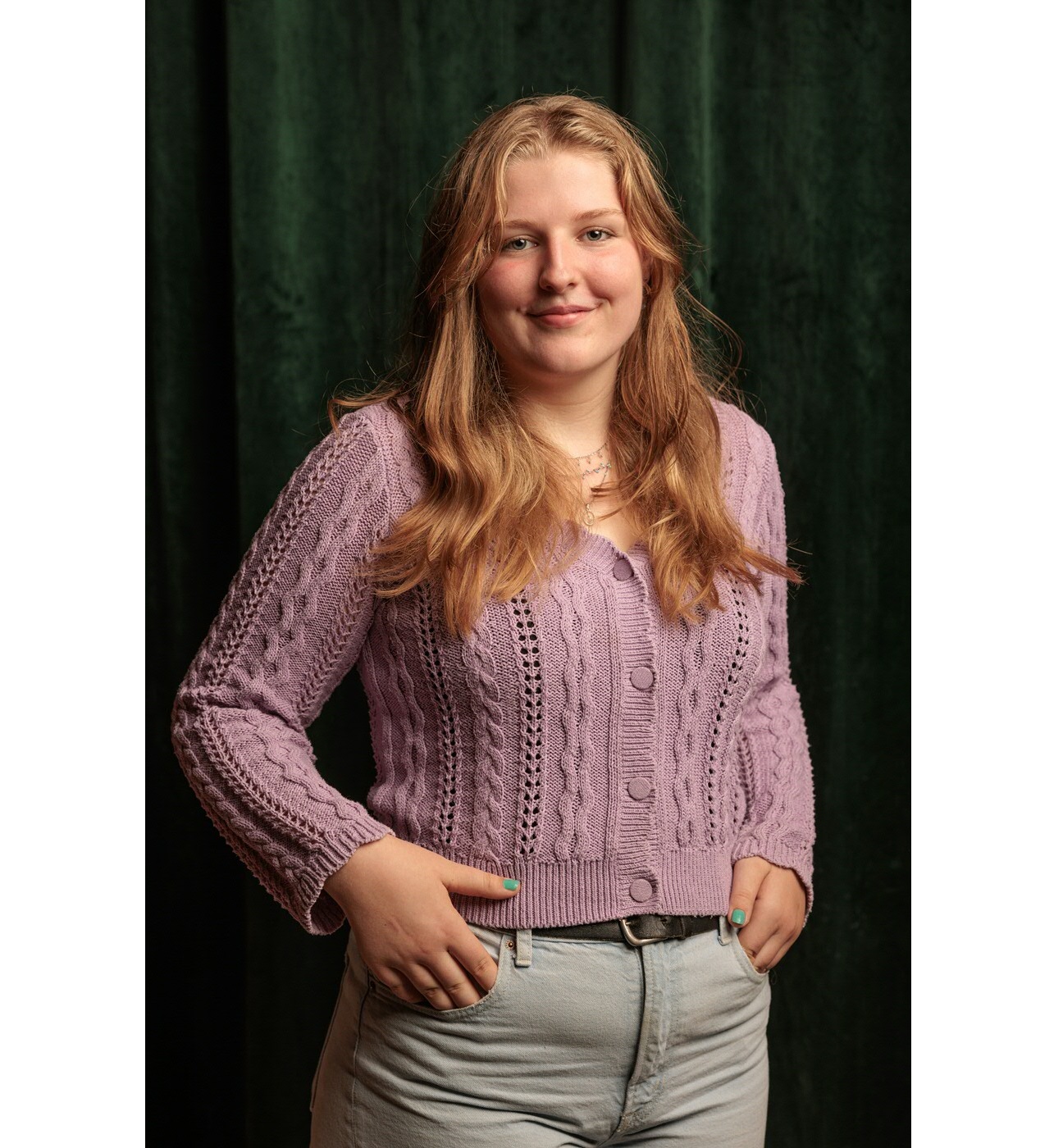
Hoi! Mijn naam is Laurie van der Meijden, ik zit nu in het tweede jaar van de Bachelor Taalwetenschap en woon sinds een jaar in de mooie stad Groningen. Ik ben actief bij een studentenvereniging en ik heb een bijbaan als huishoudelijke hulp. Mijn vrije tijd vul ik met pianospelen en met mijn vriendinnen afspreken en is er altijd wel wat te doen in de stad.
Hoewel de naam “Taalwetenschap” me niet direct warm maakte, deed de beschrijving dat wel. De vraag “Hoe ontstaat taal?” heeft me niet meer losgelaten en toen ik van de andere vakken in de bachelor hoorde, als Stoornissen in de Taalontwikkeling, was ik al helemaal geïnteresseerd. Na de Open Dag en Eén Dag Student was ik volledig overtuigd van mijn studiekeuze en ik heb nog geen enkel moment spijt gehad! Taalwetenschap is een ontzettend interessante en gevarieerde opleiding. De vakken van de ene kant zoomen in op hoe taal werkt in de hersenen en ook hoe taalstoornissen ontstaan. Ook meertaligheid wordt besproken. De andere kant focust op taal: hoe taal ontstaat, waar de verandering vandaan komt en hoe taal is opgebouwd. In tegenstelling tot wat veel mensen denken is deze studie niet gefocust op het Nederlands of op een andere taal, maar op taal in het algemeen. Kortom, de Wetenschap achter Taal!
Lees meer over Laurie en waarom zij koos voor een studie Taalwetenschap in Groningen!
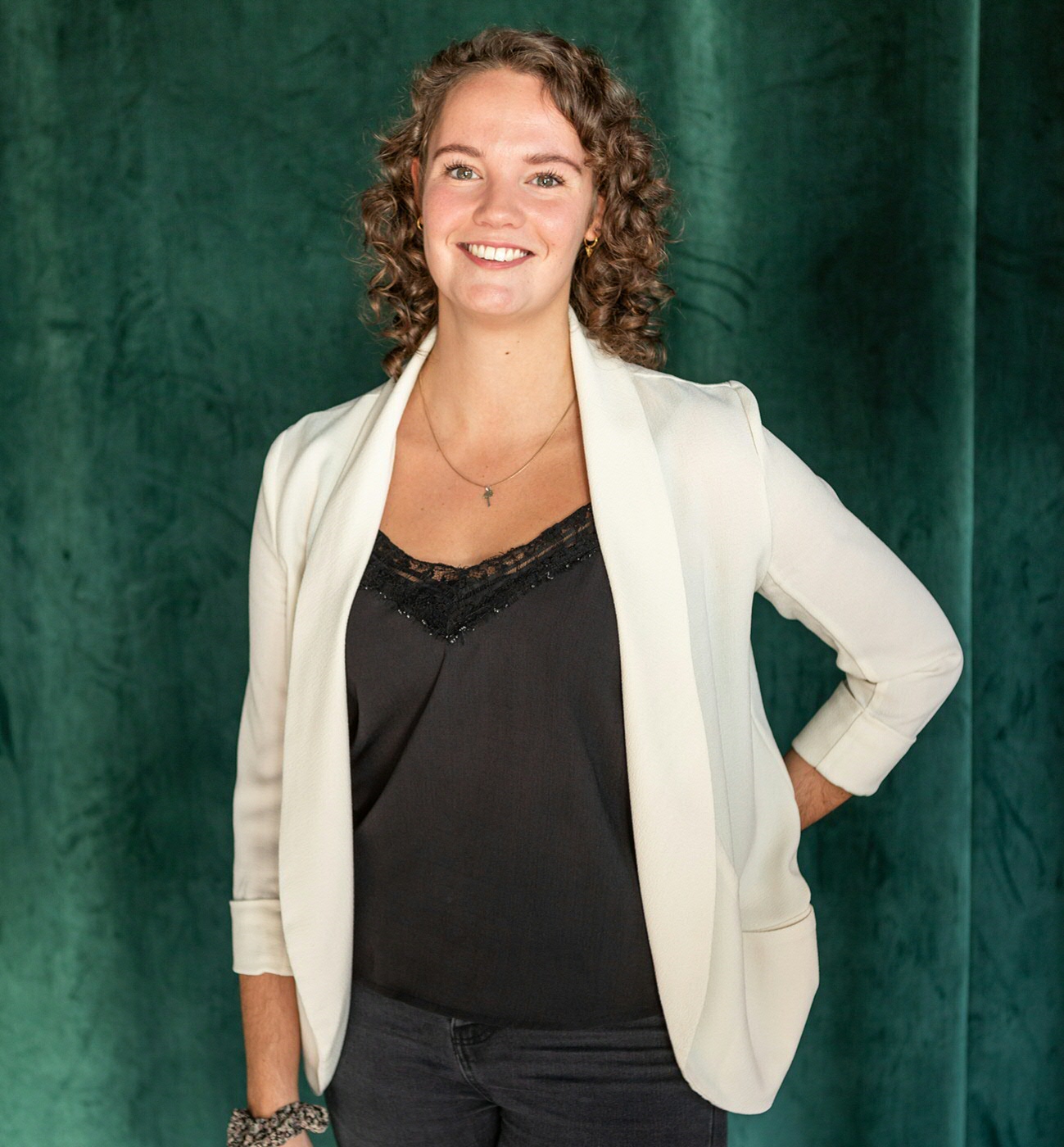
Leuk dat je belangstelling hebt voor de opleiding Taalwetenschap. Mijn naam is Mirte van Dijken en ik ben in 2018 begonnen met de bachelor. Vorig jaar heb ik mijn diploma behaald en ondertussen zit ik in mijn tweede jaar van de mastertrack Neurolinguïstiek terwijl ik ook de Bachelor Logopedie volg. Naast mijn studie volg ik danslessen, heb ik het Letterenfestival georganiseerd, trek ik veel op met mijn vrienden in de stad en houd ik van koken.
Het maken van de juiste studiekeuze kan lastig zijn, wat voor mij ook zeker het geval is geweest. Ik wist nooit precies wat ik wilde studeren. Wel heb ik altijd interesse gehad in de werking van de hersenen en wist ik dat ik mensen wilde helpen. Voordat ik met Taalwetenschap begon, heb ik nog twee compleet verschillende opleidingen geprobeerd. Nadat ik niet was aangenomen voor Geneeskunde ben ik van Biologische- en Medische research overgestapt naar Communicatie- en informatiewetenschappen, maar beide opleidingen waren het niet voor mij. Vervolgens kwam ik bij Taalwetenschap en hier voelde ik me gelijk op mijn plek. Het leuke hieraan vind ik dat je de theorie over talen in het algemeen leert, maar ook vakken krijgt over de relatie tussen taal en de hersenen, zoals bij dyslexie en afasie. Dus de psychologie en neurologie wat ik altijd al interessant vond, komt in deze opleiding ook weer terug. Taalwetenschap is dus veel meer dan alleen maar leren over taal
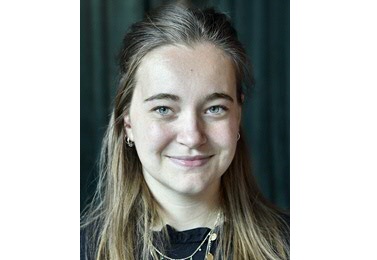
Mijn naam is Annemarie Akker. In 2016 ben ik begonnen met de bachelor Taalwetenschap. In het tweede jaar ben ik gestart met de pre-master Nederlandse Taal en Cultuur, naast Taalwetenschap. Naast mijn studie werk ik bij de Albert Heijn op verschillende afdelingen. Ook ga ik een aantal keer per week hardlopen, met name als de zon schijnt, en ben ik actief bij de studievereniging TW!ST.
De keuze voor Taalwetenschap was niet de meest makkelijke keuze die ik heb moeten maken. Na de havo heb ik eerst mijn propedeuse in de Scheikunde gehaald, zodat ik naar de universiteit mocht. De overstap van Scheikunde naar Taalwetenschap lijkt onlogisch en dat is ook meer dan waar, want de twee vakken hebben weinig overeenkomsten. De logische stap was om eerst met Scheikunde te beginnen, maar de liefde voor Nederlands bleef kriebelen, waardoor ik de overstap maakte naar de universiteit. Om toch de bètakant te behouden, leek Taalwetenschap de perfecte oplossing. In de opleiding komen namelijk de aspecten aan bod die ik zo leuk vond bij het vak Nederlands, maar ook de meer biologische/medische kant van het bèta-profiel. Zo ga je bijvoorbeeld in het vak semantiek diep in op betekenissen van woorden, maar leer je ook wat er aan de hand is bij een persoon met dyslexie of afasie.
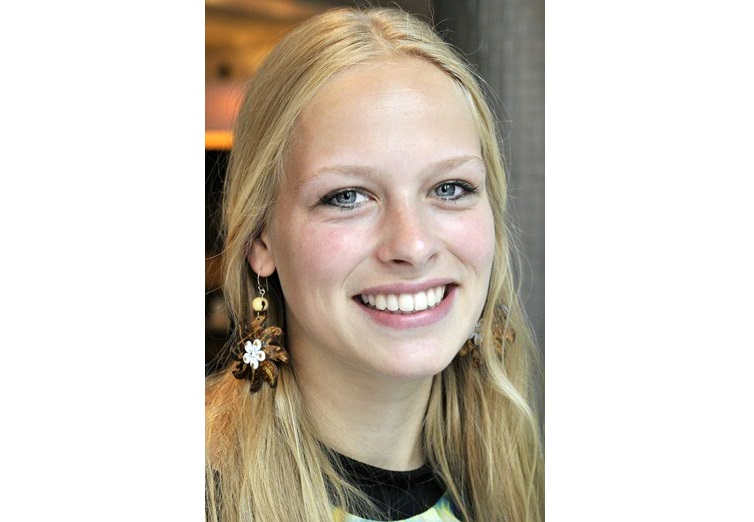
Voor mijn studiekeuze heb ik veel voorlichtingen bezocht. Er vielen al heel veel studies af, omdat ik geen natuur- en scheikunde in mijn pakket had. Op websites van universiteiten heb ik verschillende studies bekeken. Talen en culturen interesseren mij erg veel, alleen wilde ik niet een specifieke taal studeren. Na een aantal voorlichtingen en open dagen had ik een top 3. Namelijk, Pedagogische wetenschappen, Taalwetenschap en Rechten. Ik heb me nog eens verdiept in deze studies op een andere open dag, en daardoor kwam taalwetenschap op nummer 1 te staan. Om mijn keuze te bevestigen heb ik meegedaan aan Een dag student aan de RUG. Dit was erg leuk en na een jaar deze studie te hebben gedaan, ben ik nog erg tevreden met mijn keuze. Bij Taalwetenschap leer je geen specifieke taal, maar heb je het over taal in het algemeen. Bovendien krijg je bij deze studie ook nog eens de kans om de klinische kant op te gaan, wat ik altijd al graag heb gewild.
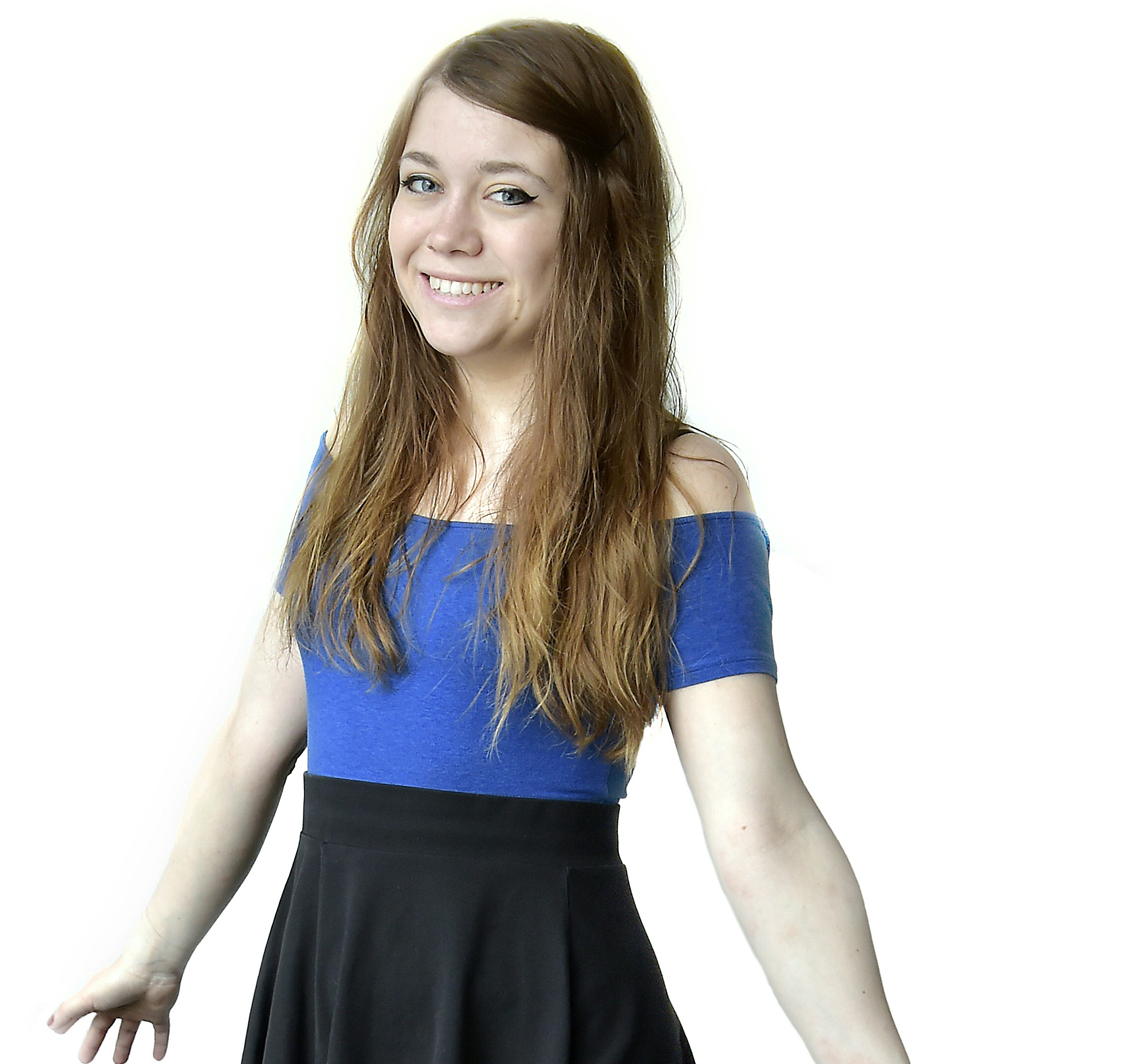
Vooral de neurologiekant van de opleiding Taalwetenschap spreekt mij aan. Wat het programma bijzonder maakt is dat het de mogelijkheid biedt om via een speciaal programma de hbo-bachelor Logopedie te volgen. Dit doe ik sinds dit jaar en het is voor mij een praktische uitbreiding op de theoretische kennis van de universitaire studie.
Naast mijn studies ben ik ook actief bij de studievereniging van Taalwetenschap, TW!ST. Daar beheer ik het geld als penningmeester. Het doen van een bestuursjaar voegt zeker iets toe aan mijn studententijd. Het leert je beter plannen, samenwerken en (in mijn geval) beter omgaan met geld. Ook ben ik al vier jaar actief lid bij studentenroeivereniging Gyas. Hier heb ik een commissie gedaan en ben ik actief als roeier, stuurvrouw en coach. Behalve een fantastische tijd heeft me dit veel vrienden en contacten opgeleverd en ben ik socialer, daadkrachtiger en extroverter geworden. Mijn mening is dus vooral: verbreed je horizon! Doe veel verschillende dingen, want uiteindelijk helpen ze je allemaal in de toekomst.
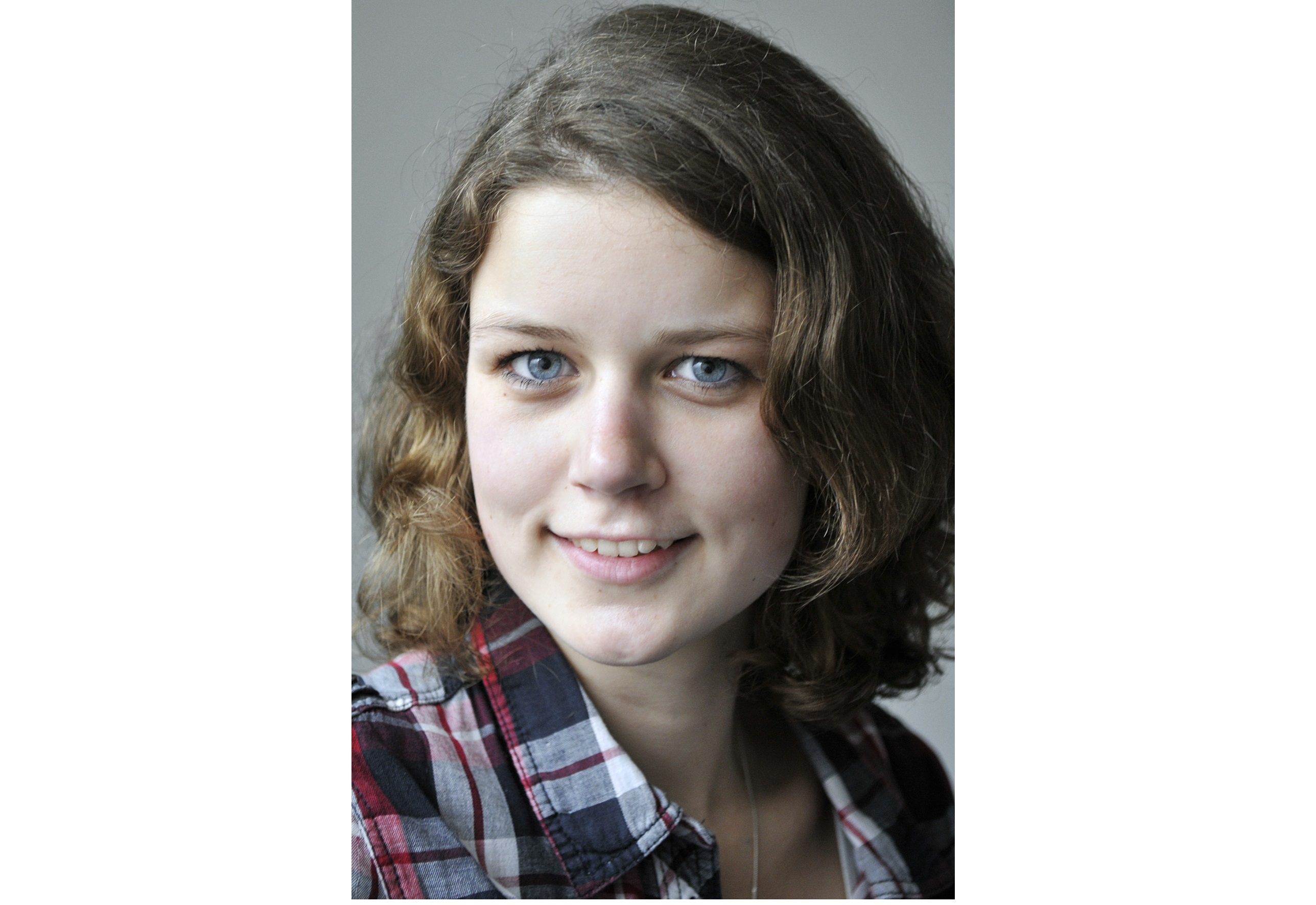
Mijn keuze voor taalwetenschap bleek de juiste te zijn. Ik heb het erg naar mijn zin, helemaal sinds ik ook in Groningen op kamers woon. Afspreken met vrienden en studiegenoten wordt dan toch wat makkelijker! En ik kan gaan sporten via de ACLO, de studentensportvoorziening.
Taalwetenschap is een onbekend vakgebied als je van de middelbare school komt. Vooral werkcolleges vind ik erg leuk, omdat je in discussie kunt gaan met medestudenten en de docent. Inmiddels ben ik ook begonnen m et het Honours College, zodat ik nog meer uit mijn studie kan halen. Tijdens de studie krijgen we vanaf het begin te maken met de theoretische kant én de toegepaste kant. Zo kom je er snel achter welke kant je het meeste aantrekt en waar je verder in wilt. Je moet wel veel meer zelf plannen dan op de middelbare school, maar gelukkig gaat dat me goed af. Ik zou graag tijdens mijn bachelor een tijdje in het buitenland studeren. Misschien wel Spanje, ik heb namelijk gekozen voor de minor Spaans.
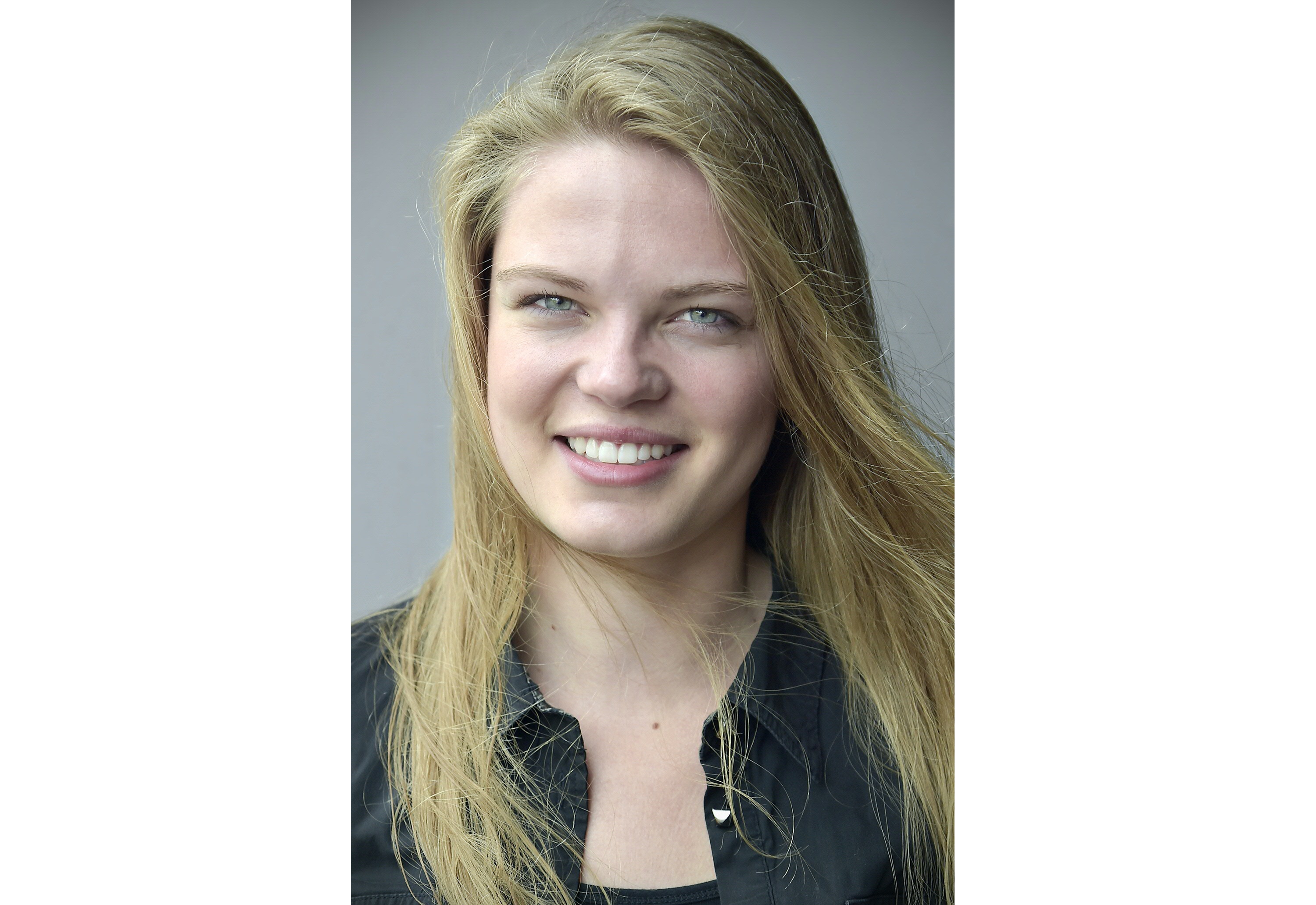
Toen ik Taalwetenschap ging studeren had ik een vrij goed beeld van de opzet van de studie. Nu ik mijn eerste jaar er bijna op heb zitten kan ik zeggen dat al mijn verwachtingen overtroffen zijn. Ik voel me ontzettend thuis in dit vakgebied en bij de opleiding.
Ik houd van hard werken en miste soms nog wel wat uitdaging, maar die heb ik nu gevonden bij het Honours College. Deze combinatie, samen met een bestuursfunctie bij studievereniging TW!ST, maakt dat ik het heel erg naar mijn zin heb in Groningen. Ook vind ik het fijn dat er naast de verplichte vakken minorruimte is.
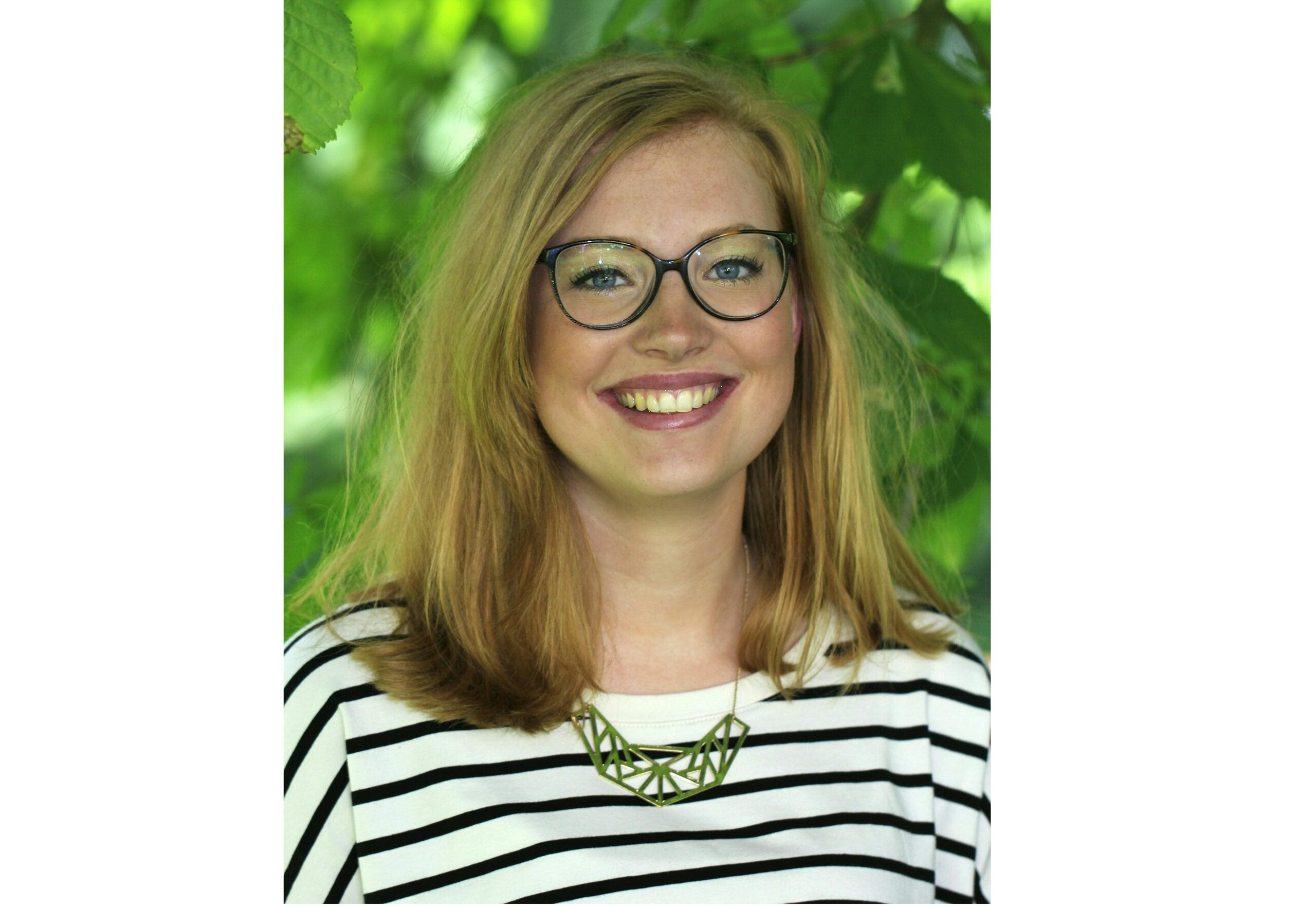
Ik werk als logopedist bij een grote zorgorganisatie. Hier behandel ik volwassenen die spraak-, taal- of slikproblemen hebben, vaak als gevolg van een beroerte of andere neurologische problemen, zoals Multiple Sclerose of de ziekte van Parkinson.
Wat ik het meest waardeer in deze functie is dat ik mensen kan helpen. Communicatie is ontzettend belangrijk en daarom vind ik het fijn dat ik mensen die hier problemen mee hebben, soms zelfs van de één op de andere dag, kan helpen en weer een stem kan geven, bijvoorbeeld na een beroerte
Voor de toekomst wil ik zo veel mogelijk mijn logopedische kennis uitbreiden. Ook zou ik graag officieel afasietherapeut worden en uiteindelijk als logopedist én klinisch linguïst aan het werk willen, bijvoorbeeld in een revalidatiecentrum.
Are you a pre-university pupil and would you like to find out what studying at university is all about? The Linguistics degree programme offers a web class! A web class is a course offered by the UG via Brightspace (digital environment) for pupils in the 5th and 6th years of pre-university education. The course involves ten study hours, which serve as an introduction to Linguistics. You read texts, do assignments and hold discussions with other prospective students and a lecturer.
Interested? Sign up for the web class.
You can find more information on the application and registration procedure for students of Speech Therapy, here .